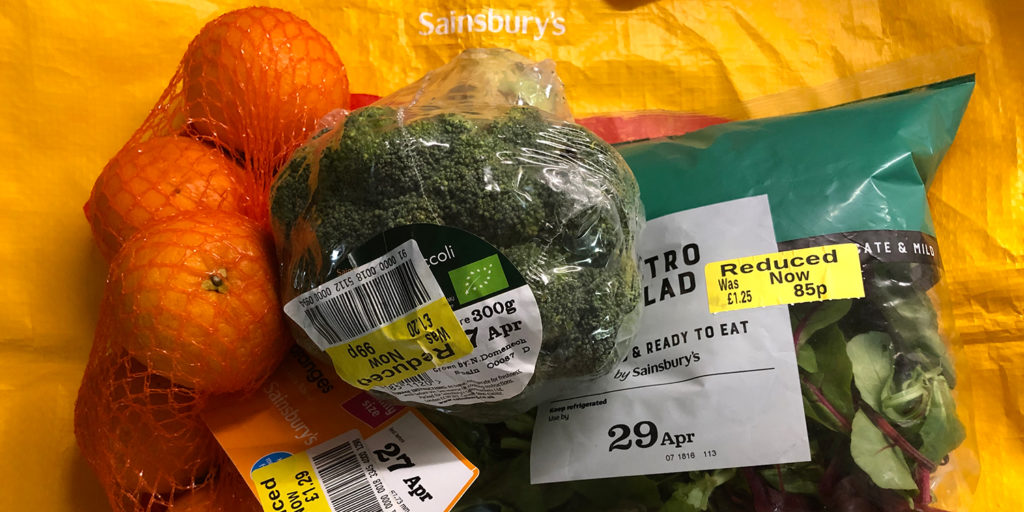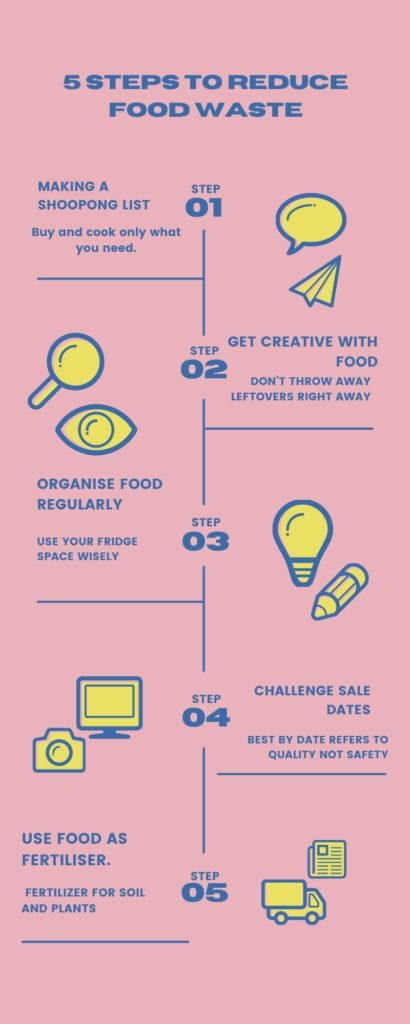New figures show that it takes 375,000 waste collection vehicles to completely clean up the food discarded by families each year.

The Waste and Resources Action Programme (WRAP) reminded the public on Stop Food Waste day that UK households waste 4.5 million tonnes of food each year.
This represents 375,000 rubbish collecting vehicles which parked nose-to-tail would circumnavigate the M25 13 times to move the UK’s annual food waste mountain.”
Stop Food Waste Day is held on the last Wednesday of Earth Month, which on 28 April this month. The latest figures from the circular economy organisation WRAP have been released at the same time. WRAP analysis that the cost of food waste to the planet and the public cannot be ignored.
Marcus Gover, chief executive of WRAP, said: “We are in a new decade and have just 10 years if we are to honour our international commitment to halve food waste. This really matters because it is untenable that we carry on wasting food on such a monumental scale when we are seeing the visible effects of climate change every day, and when nearly a billion people go hungry every day.
Behind food waste is a high financial cost, with the total financial cost of food waste in the UK costing £10.2 billion each year. This represents a cost of between £250 and £400 per household per year.

A study conducted by the Swedish Institute for Food and Biotechnology SIK in 2011 showed that the total amount of food wasted globally is about one-third of the total amount of food produced by humans about 1.3 billion tonnes -while over 815 million people in the world struggle to find food. This is why the United Nations has also launched a “Save Food” initiative.
But these are not the only substantial problems associated with food waste. Food waste has a significant negative impact on the environment that was not anticipated at the outset.
The Food and Agriculture Organization (FAO) reports that the food waste generated by this production and consumption contributes to 8% of greenhouse gas emissions and that the amount of water used to dispose of this uneaten food is about 250km³ per year, which is about three times the amount of Lake Geneva.

Food waste also creates 18 million tonnes of landfill space. The UK produces around 21% of the world’s methane and greenhouse gases from the disposal of waste. In addition to the food itself, packaging and distribution are also important contributors to waste. When food is thrown away, it is often accompanied by packaging that could be recycled. This also leads to more waste and transport.
Positively, this situation is causing more and more people to take the issue of food waste seriously. The government is implementing policies to stop this waste.
Many supermarkets are now donating excess food to charity in addition to reducing the price of food sold close to or by the date. For example, Sainsbury’s has started the ‘Love Food Hate Waste’ scheme which hopes to reduce food waste.

It is also important to reverse the perception that ‘ugly’ food is of poor quality. The “ugly” appearance is the reason why buyers and sellers refuse to buy them, which leads farmers to discard them in the end. The European Union, for example, has made it impossible to sell asparagus unless it is at least 80 per cent green in length.

So in order to change this situation, since 2014 most shops have been consciously increasing the sale of this imperfect food. By reducing the price or putting the vegetable into ready-made meals and salads, people are being urged to bring this imperfect looking food to the table.
Despite this, the majority of food waste comes from British households themselves. And with the impact of the previous Lockdown in the UK, restaurants are closing. Home cooking has become necessary again. So here are 5 practical steps to help British families reduce their food waste.

